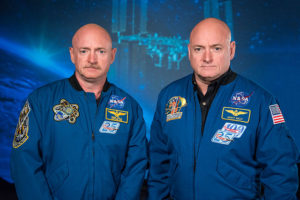
A new study carried out by researchers from the Northwestern University suggests that space travel may shift the balance between gut bacteria in astronauts.
The Northwestern team is one of 10 NASA-funded research groups that have been studying Scott and Mark Kelly, identical twin brothers and NASA astronauts, as part of a unique human study to learn how long period stay in space affects the human body. A few months back, Scott had returned to Earth after spending nearly a year in space, while his brother, Mark, served as a ground-based control.
The study found there was a change in the balance between Firmicutes and Bacteroidetes group bacteria in Scott Kelly’s GI tract during his stay in space. After his return to Earth, the balance returned to pre-flight levels. Changes in same bacterial groups were observed in Mark Kelly, but those changes were not as great as those seen in Scott Kelly in space.
“We are seeing changes associated with spaceflight, and they go away upon return to Earth,” said Fred W. Turek, the co-leader of the study, and the Charles E. and Emma H. Morrison Professor of Biology in the Weinberg College of Arts and Sciences.
Martha H. Vitaterna, study co-leader and research associate professor of neurobiology at Northwestern said: “It’s early in our analysis, so we don’t know yet what these changes mean.”
“We don’t know what it is about spaceflight that is driving the changes in gut microbes.”
Turek also revealed that they “will be working closely with the other Twins Study teams to piece together a more complete picture of the effects of long space missions.”
“What we learn will help us safeguard the health of astronauts, and it will also help us improve human health on Earth,” he added.